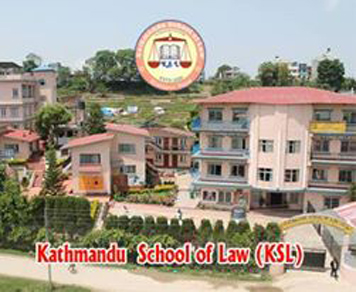Publications
- Home
- Publications
- Thematic Publications
Thematic Publications

नेपालमा पर्यटन तथा इन्टर्नेटबाट हुने व्यापारिक बालयौनशोषण अध्ययन–प्रतिवेदन सारसंक्षेप
February 22, 2017
Report

Commercial Sexual Exploitation and Abuse of Children in tourism and Online
February 22, 2017
TDH report
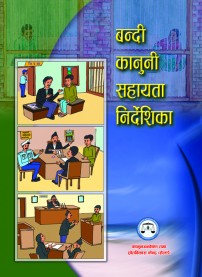
बन्दी कानुनी सहायता निर्देशिका २०६४
August 03, 2016
The Legal Aid Manual was first of its kind to provide practical guidelines on both the knowledge and skills for providing legal aid. It comprises of the procedural and substantive rights of prisoners concerning fair trial; skills required for effective legal aid service; domestic and international instruments and practices in order to ensure the fair trial standards; skill development an...
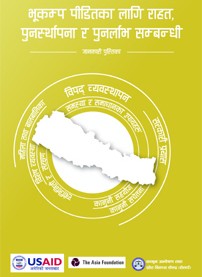
भूकम्प पीडितका लागि राहत, पुनस्र्थापना र पुनर्लाभ सम्बन्धी जानकारी पुस्तिका
August 02, 2016
booklet-celrrd for update for final
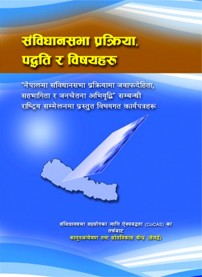
संविधानसभा प्रक्रिया, पद्धति र विषयहरु, संविधानसभा सहयोगका लागि एक्यवद्धता
April 03, 2016
The law reform program implemented with Office of the Attorney General and the first of its kind is designed to strengthen the capacity of Attorney General Office and public prosecutors to play an active role as one of the major stakeholders of criminal justice system. Understanding problems inherent in the Muluki Ain, the government of Nepal had introduced bills related to Criminal Code...
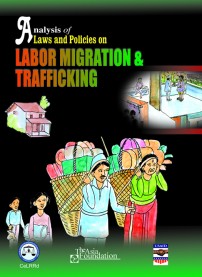
Analysis of Laws and Policies on Labor Migration & Trafficking (Nov 2002)
July 08, 2015
It shows the linkage between the processes of migration and trafficking. It has elaborately covered the-then anti-trafficking legal framework of Nepal and the proposed bill in this regard.

द्वन्द्व रुपान्तरण र शान्ति स्थापनार्थ छलफल सामाग्रीको संगालो
July 08, 2015
It is a compilation of discourse materials for conflict transformation and peace building. It attempts to clarify the concepts through the ideas of different writers. (A compilation of Discourse Material for Conflict Transformation and Peace Building (EU Support 2062 Jestha)
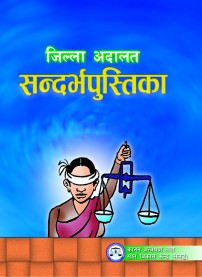
जिल्ला अदालत सन्दर्भ पुस्तिका
July 08, 2015
To enhance the efficiency of district court officials, the manual was prepared by a working committee in the guidance of high level management committee. The working committee was constituted in collaboration with the Supreme Court. A significant number of district court officials have been trained based on this Manual.
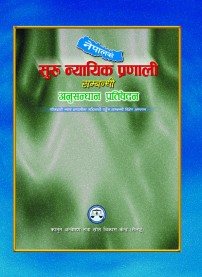
शुरु न्यायिक प्रणालीसम्बन्धी अनुसन्धान प्रतिवेदन
July 08, 2015
This report traces out various obstacles prevailing in Nepalese Trial Court. It has made attempts to study the situation of women's access to criminal justice system.
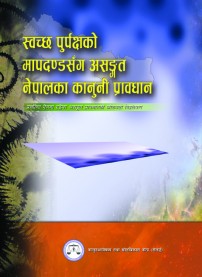
स्वच्छ पुर्पक्षको मापदण्डसँग असङ्गत नेपालका कानूनी प्रावधान
July 08, 2015
This book aims at analyzing the existing Acts of Nepal with regards to fair trial standard; whether they are compatible with fair trial standards and their implementation nation-wide in order to ensure human rights.
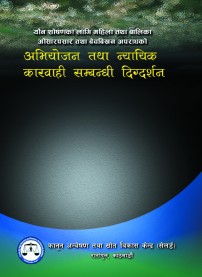
अभियोजन तथा न्यायिक कारवाही दिग्दर्शन (२०५९)
July 08, 2015
This manual comprises of procedural aspect of trafficking, under criminal justice system. This also includes constitutional provisions, other national acts and international instruments to which Nepal is a party
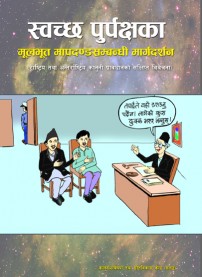
स्वच्छ पुर्पक्षका मूलभूत मापदण्डसम्बन्धी मार्गदर्शन
July 08, 2015
Manual on Fair Trial Standards (2005)
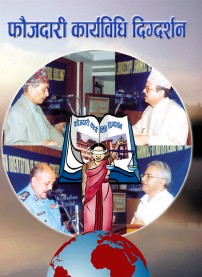
फौजदारी कार्यविधि दिग्दर्शन
July 08, 2015
Considering the lack of the criminal procedural code, all the actors of the justice sector collaborated to develop the Guidelines for making themselves capable to deal with criminal cases. It consists of laws related to criminal procedure, international instruments, code of conduct of the actors of criminal justice, and precedents propounded by the SC.
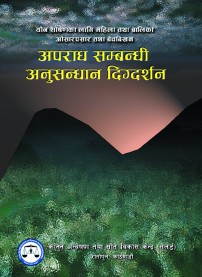
अपराध सम्बन्धी अनुसन्धान दिग्दर्शन (२०५९)
July 08, 2015
This manual comprises of procedural aspects in relation to investigation of the crime of women trafficking. The focus is on the Crime Investigation Department of the Nepal Police. It also includes constitutional provisions, other national acts and international instruments to which Nepal is a State party.
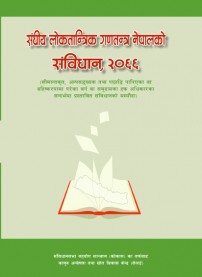
भावि संविधानका लागि अल्पसंख्यक सिमान्तकृत तथा पिछडिएको वर्गका अधिकार र संरक्षणका लागि संविधानसभामा प्रस्तावित सुझावहरु
July 08, 2015
It is a draft constitution prepared by CoCAS (a consortium to support constituent assembly processes) that articulates for upholding and promoting the rights of marginalized, minorities and Dalits in the upcoming constitution. It also advocates for guaranteeing many special provisions like separate electorate, adopting zero tolerance in case of discrimination and others.
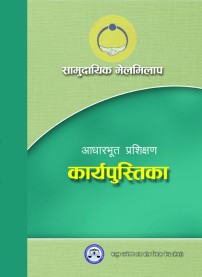
सामुदायिक मेलमिलाप आधारभूत प्रशिक्षण कार्यपुस्तिका
June 26, 2015
This manual is a revised version which includes a wide range of topics including mediation's historical development, reasons and levels of dispute, basic principles of mediation, code of conduct to be followed by community mediators, to mention a few.
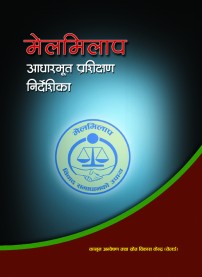
मेलमिलाप आधारभूत प्रशिक्षण निर्देशिका
June 26, 2015
This manual has been developed for personnel involved in court-annexed mediation in order to make easy access to justice, and ensure rule of law. It provides knowledge and skills needed for doing mediation at court-annexed mediation centers.
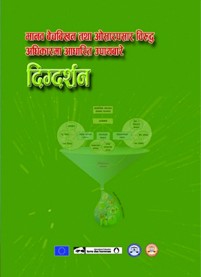
मानव बेचविखन तथा ओसारपसार विरुद्ध अधिकारमा आधारित उपाय बारे दिर्ग्दर्शन
April 01, 2015
It sheds light upon how trafficking leads to the violation of certain rights of trafficking victims like right to life, self-decision, choose profession, reproductive health and against slaver. It also does a comparison of how far Nepal, India and Bangladesh have applied and contextualized international laws and other conventions with regards to trafficking.
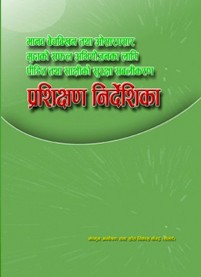
मानव बेचविखन तथा ओसारपसार मुद्दाको सफल अभियोजनका लागि पिडित तथा साक्षी सुरक्षा सवलीकरण प्रशिक्षण निर्देशिका
March 20, 2015
It deals about the challenge that due to insecurity and threat on the part of victimizers, victims and witnesses become reluctant to lodge their complaints and fight against them. The provisions made by the new Human-Trafficking and Transportation Control Act 2064 for the protection of victims and witnesses are also discussed.
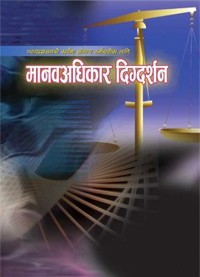
न्याय प्रशासनको कार्यमा संलग्न कर्मचारीका लागी मानव अधिकार दिग्दर्शन (२०६० माघ)
April 01, 2015
It provides guidelines to judicial staffs on how to deliver justice to victims of crimes and injustices thereby protecting their and other court users' rights.



